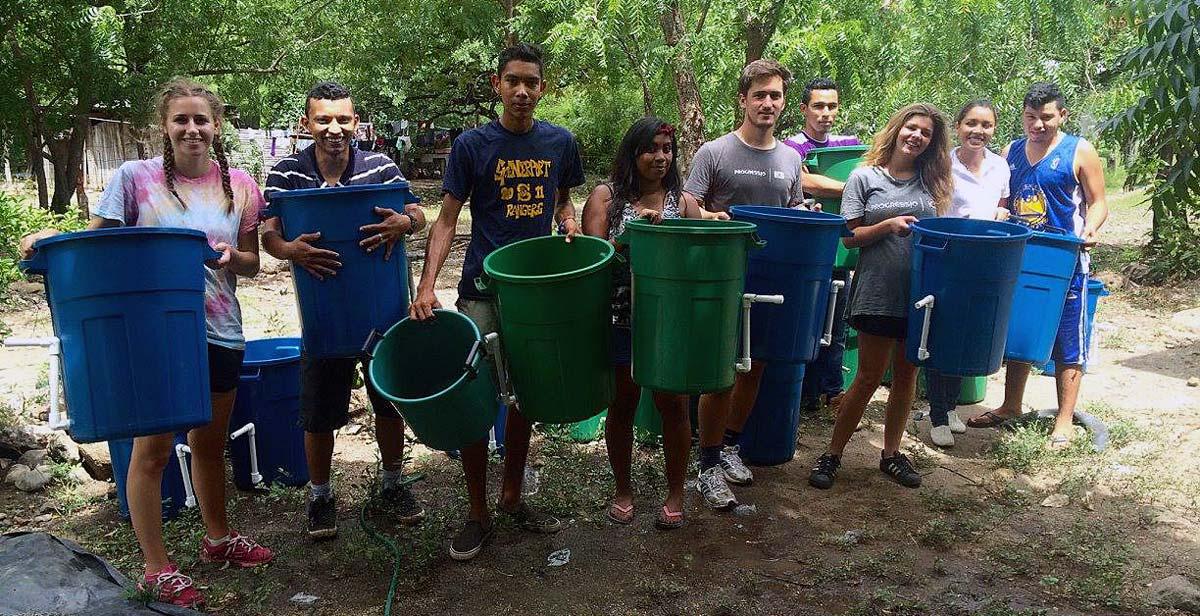Known as the beautiful land of lakes and volcanos, one could be forgiven for thinking that Nicaragua might be free from water related problems. But having visited the heavily polluted Lake Managua at the start of our cycle, supposedly full of ‘three eyed mutated fish’, it is clear that this is not the case. In spite of a vast quantity of water, very little is safe for consumption or even accessible, leaving roughly 900 thousand Nicaraguans without drinkable water.
The country is trying to overcome these difficulties, however, with the number of people having access to safe water and adequate sanitation being on the rise. But currently, two million people do not have access to adequate sanitation, while a third of the population live without an adequate toilet, although I’m not entirely sure what constitutes an ‘adequate’ toilet…
There remains a large disparity between water and sanitation in urban areas compared to more rural communities. In some of these communities more than 80 per cent of the families do not have access to safe drinking water. These rural villages such as Parcila are situated in mountain ranges (very beautiful ranges it must be said) and thus isolated from more urbanised areas. Consequently, families must drink water from local rivers and wells. Unfortunately, droughts cause water shortages and even when there is a large supply, drinking this water often does more harm than good.
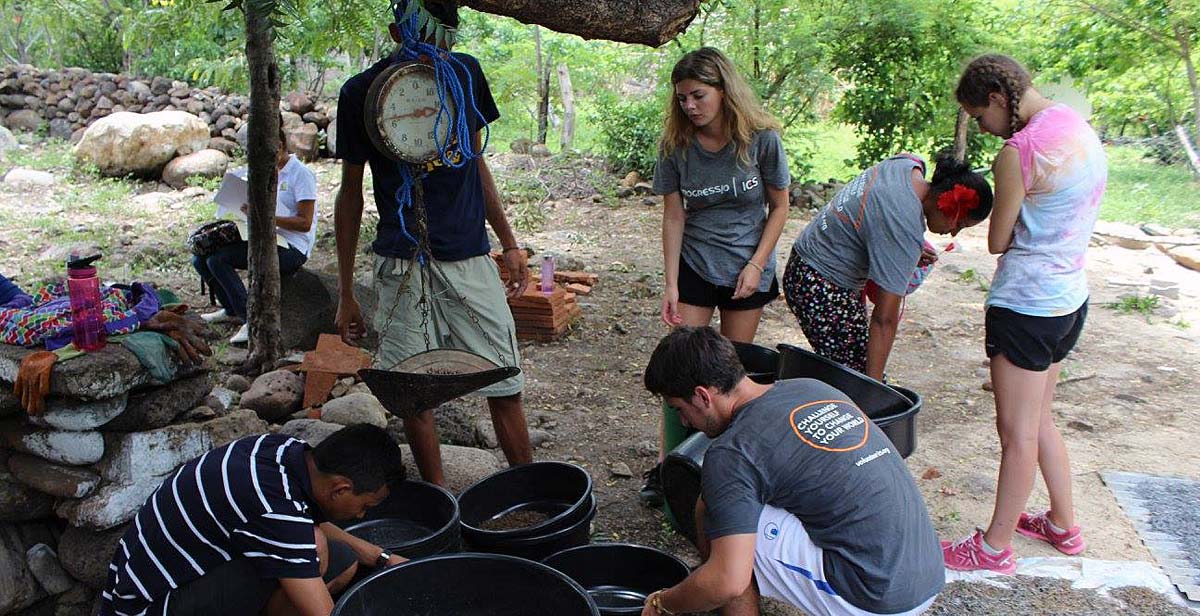
While the water in these rivers is fantastic to bathe in after a hard day’s work, it is heavily contaminated from mining and agriculture, as well as extensive cattle ranching, deforestation and soil erosion, causing the water to become teeming with harmful bacteria. Not only does drinking this water impair the health of an individual, but water-based diseases also impede people from working and effects economic growth. Children drinking this water are likely to contract diarrheal diseases, which can be fatal, with 300 children dying each year because of unsafe water. More worrying still is that these water-based diseases are becoming more prevalent.
One of the most efficient ways to combat the issues of unsafe drinking water is to install each home in rural communities with a plastic water filter. One of the objectives of the Progressio team has been to install 52 water filters to the families of Parcila with 26 to be finished this week.
By using one of the water filters provided and constructed by Progressio, families can have a constant source of safe drinkable water preventing the increased risk of contracting diarrheal diseases and the likelihood of getting ill. These water filters are easy to construct (supposedly!), simple to use and very cost effective, making them a great solution to the water and sanitation issues in rural Nicaragua.
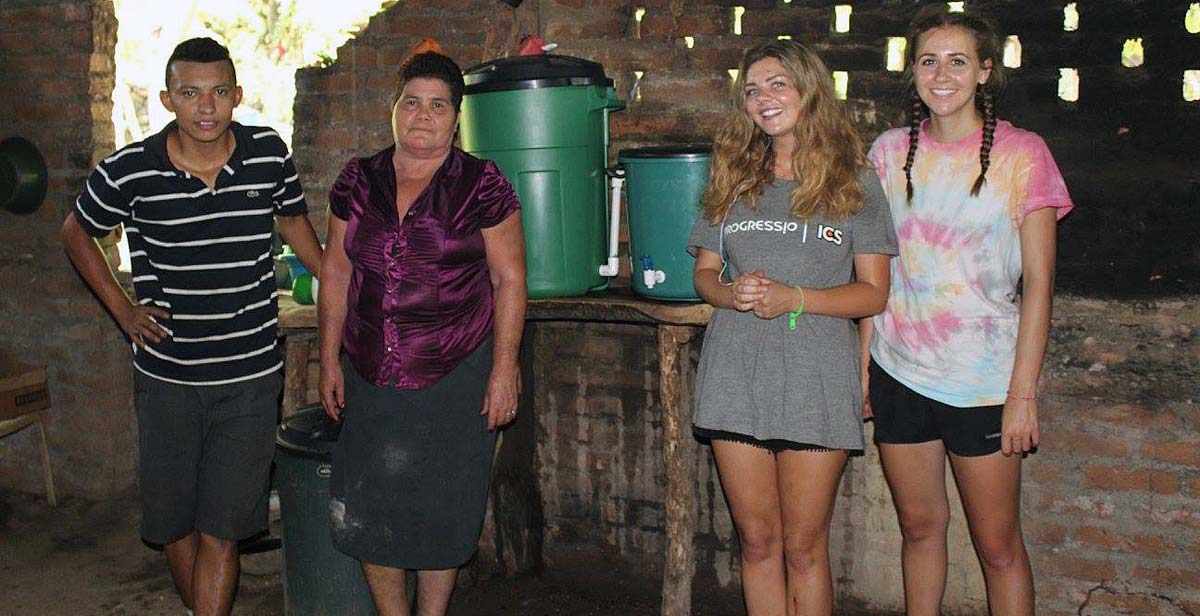
Thankfully this week will see us provide filters to the majority of houses in Parcila and while more are still needed in this community, as well as in many others across Nicaragua, they have been shown to be very helpful to members of the community in Parcila.
Ramon Suarez and his family have had their water filter for four months now and are very happy that they received one, with the filtration system used every day.
“The water filters are important as they help to filter out the dirty water through the different layers of sand, and then nails remove arsenic from the water, well, it diminishes the amount of it”.
“I am pleased with the filter and it is also an advantage that it has a tap so the water remains clean, taking it from a bucket before meant it could become dirty from contact with other things. Having the filter has made a big difference as it has reduced stomach aches in our family, but the taste hasn’t changed much”.
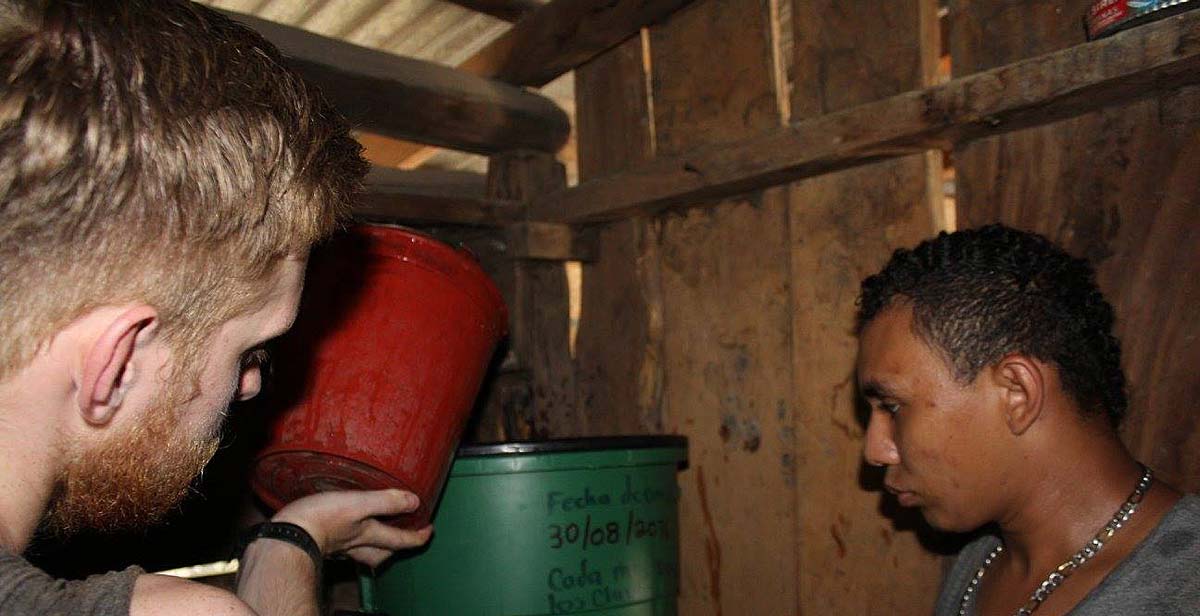
Jacinta Torrez and her family are currently on the beneficiary list for water filters and will be having one installed this week. Jacinta is very much looking forward to receiving her water filter in the coming days and plans to give it the appropriate maintenance.
“It will be good to get a water filter as they improve our health as it filtrates the unclean water. While I don’t know how the water filters work yet because we don’t have one, I plan to learn from the training and when I start using it”.
“Having not tried a filter yet I am unsure how much of a difference it will make but I believe of course that it is going to improve our health as it has been tested in other houses in the community and means the water will be purified”.
To ensure the water filters are maintained and well looked after (hopefully), families are given dates on the bucket of when the materials must be cleaned as well as required attendance to a training workshop, which we ran on Wednesday. This training allowed us to inform the recipients of the filters how to maintain them and the importance of their use.
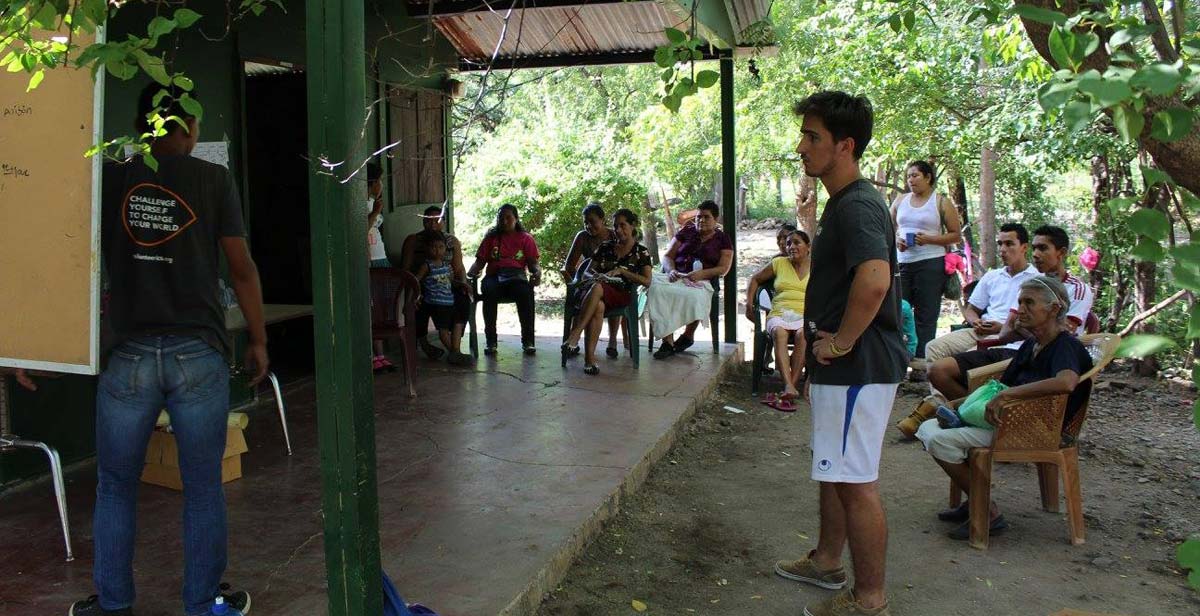
In terms of how the filters are made, holes are burnt into a large and small bucket, with a cylindrical tube cut into varying parts and glued together, all very technical stuff really...
In addition, to the buckets, a tub and a load of tubing, the filter consists of 10cm layers of large rocks, small stones, sand, and coal with oxidised nails and red bricks on top. The rocks and stones help to keep the water clean and fresh, with the sand filtering bacteria and larger molecules from the drinkable water. Nails and bricks extract the harmful substances such as arsenic, while coal helps to give the water a better flavour and remove the metallic taste, although I doubt it tastes as nice as Volvic or Evian…
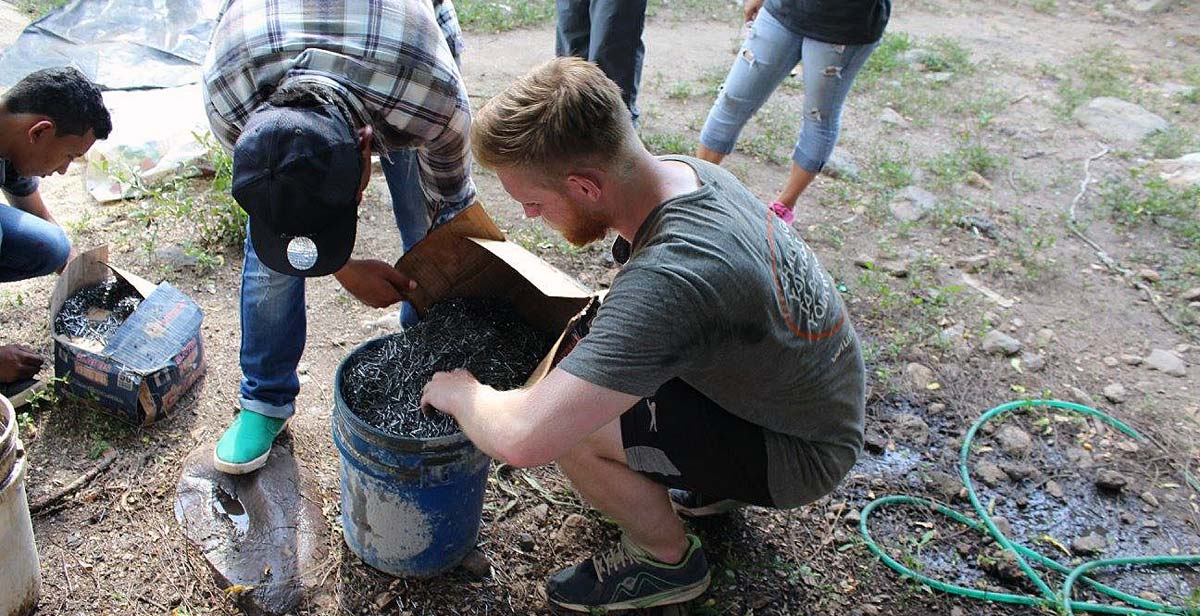
The tubing from the bottom of the larger bucket containing said items then passes filtrated water to the smaller bucket which is emptied from a tap at the bottom, allowing even small children an accessible way to drink clean water.
Finishing the last of the 52 water filters this week will greatly reduce the chances of people contracting diarrhoeal diseases and keep the community healthy. It is extremely rewarding to see that such a small effort from us Progressio ICS volunteers can make such a difference to the lives of the people living in Parcila.
Written by ICS volunteer James Hayward


